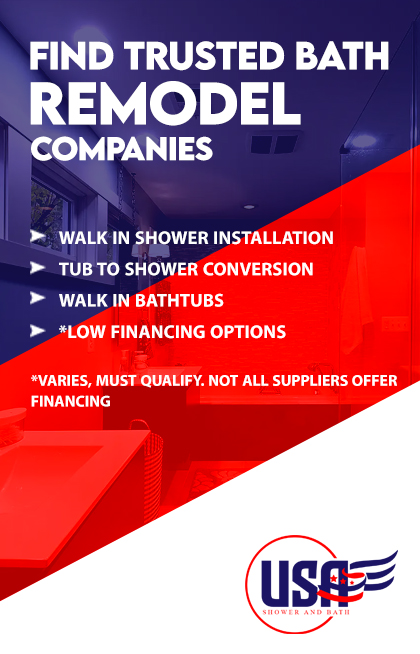
How Much Does a Bathtub Renovation Cost in 2023?
When considering a bathroom remodel, one of the key components homeowners focus on is the bathtub. Renovating a bathtub can dramatically alter the look and feel of your bathroom. This comprehensive guide will delve into the various aspects and costs associated with bathtub renovation in 2023.
Introduction to Bathtub Renovation
A bathtub renovation involves various possibilities, from a simple refinishing job to a complete replacement with a modern, luxurious tub. Your choice will heavily depend on your budget, bathroom size, and desired outcome. Understanding the various options and their associated costs is crucial to making an informed decision.
Cost Breakdown
Bathtub Refinishing:
Average Cost: $300 – $600
Bathtub refinishing or reglazing is a cost-effective way to refresh your tub’s appearance without a complete replacement. This process involves repairing cracks, sanding the surface, and applying a new finish. It is suitable for bathtubs with minor cosmetic issues and no major structural damage.
Bathtub Liner:
Average Cost: $800 – $1,000
Bathtub liners are custom acrylic inserts that are molded to fit over your existing tub. They are a quick and moderately priced option for upgrading the look of your bathtub, though they do not address underlying issues.

Bathtub Replacement:
Average Cost: $1,500 – $5,000 (including installation)
A bathtub replacement involves removing the old tub and installing a new one. The cost varies widely depending on the tub material, size, and additional features.
Additional Costs:
Plumbing Adjustments:
If your bathtub renovation involves replacing or moving the tub, you may need to make plumbing adjustments. This can add $500 to $1,000 to your total cost.
Tile Work:
Renovating a bathtub often involves updating the surrounding tile. Tile work can cost an additional $500 to $2,000.
Labor:
Labor costs for bathtub renovation can range from $500 to $1,500, depending on the project’s complexity.

Factors Influencing Bathtub Renovation Cost
1. Material:
Different bathtub materials come with varying costs. Acrylic and fiberglass tubs are generally more affordable, while cast iron and cultured marble tubs are more expensive. When it comes to bathtub renovations, the material you choose plays a significant role in both the cost and the longevity of the bathtub. Below is an analysis of common bathtub materials, their advantages, and average cost estimates.
Acrylic:
Advantages:
- Lightweight
- Available in various shapes and sizes
- Good insulation properties
- Resistant to scratches and can be easily repaired
Average Cost:
$300 – $900
Fiberglass:
Advantages:
- Lightweight and easy to install
- Inexpensive
- Available in many styles
Average Cost:
$200 – $500
Porcelain-Enameled Steel:
Advantages:
- Durable
- Easy to clean
- Available in various styles and colors
Average Cost:
$300 – $1,200
Cast Iron:
Advantages:
- Extremely durable and long-lasting
- Retains heat well
- Classic, timeless look
Average Cost:
$500 – $2,000
Cultured Marble:
Advantages:
- Elegant and luxurious look
- Durable
- Available in various colors and styles
Average Cost:
$1,500 – $2,500
Solid Surface:
Advantages:
- Durable and long-lasting
- Non-porous, making it easy to clean and maintain
- Available in various styles and finishes
Average Cost:
$1,200 – $2,500
Each material has its own set of pros and cons, and the best one for your bathtub renovation depends on your budget, aesthetic preferences, and functional requirements. While acrylic and fiberglass are more budget-friendly options, materials like cast iron and cultured marble offer higher durability and a more luxurious appearance, albeit at a higher cost.

2. Size and Style:
Larger bathtubs and those with unique styles and additional features (e.g., freestanding tubs, whirlpool tubs) will cost more to renovate or replace. Before diving into the renovation, it’s essential to understand the size requirements for your new bathtub. Measure the available space in your bathroom accurately to determine the maximum size your new bathtub can be. The standard bathtub size is around 60 inches long and 32 inches wide, but many other options can either be smaller or larger, depending on your space and needs.
Types of Bathtubs and Styles:
Alcove Bathtubs:
Description:
- Common and practical
- Installed adjacent to three walls
Size Options:
50-72 inches long, 30-36 inches wide
Freestanding Bathtubs:
Description:
- Standalone tubs available in various designs
- Requires more space but adds a luxury feel
Size Options:
55-72 inches long, varying widths
Corner Bathtubs:
Description:
- Designed to fit into a corner
- Can be larger and accommodate more than one person
Size Options:
48-72 inches along each side
Drop-in Bathtubs:
Description:
- Dropped into a frame or structure
- Offers flexibility in design
Size Options:
Typically 60 inches long, 32 inches wide
Clawfoot Bathtubs:
Description:
- Classic, vintage style
- Stands on claw-like feet
Size Options:
54-72 inches long, varying widths

3. Location:
The cost of bathtub renovation can also vary based on your geographical location.
Tips for Cost-Effective Bathtub Renovation:
Assess Your Needs:
Carefully evaluate the current state of your bathtub and determine whether a refinishing job, a liner, or a complete replacement is necessary.
Set a Budget:
Establish a realistic budget and stick to it. Make sure to account for additional costs like plumbing adjustments and tile work. Setting a realistic budget for a bathtub renovation demands a careful analysis of various factors. The total cost will largely depend on the extent of the renovation, the materials chosen, and the labor involved. As you embark on the journey to renovate your bathtub, it’s crucial to have a well-thought-out financial plan to ensure the successful completion of your project without unnecessary financial strain.
Budget for Style
Firstly, think about the type and quality of materials you envision for your new bathtub. High-end materials such as natural stone or cast iron will significantly increase the cost compared to more affordable options like fiberglass or acrylic. However, it’s essential to remember that investing in quality materials will pay off in the long run in terms of durability and longevity.
Consider Labor Costs
Labor costs are another substantial component of your bathtub renovation budget. Hiring skilled professionals is vital to ensure the work is done correctly, safely, and to a high standard. While it may be tempting to save money by choosing the cheapest contractor, it’s worth investing in an experienced and reputable professional to avoid future issues and additional expenses related to poor workmanship.
If your renovation involves altering the plumbing or making structural changes to your bathroom, expect the costs to escalate. These complex tasks require the expertise of plumbers and possibly other specialists, adding to the overall expenses.Incorporating additional features like jets for a whirlpool tub or a sophisticated faucet and showerhead setup will also influence the total cost. It’s prudent to factor in these elements at the early stages of budget planning to avoid surprises later on.

Get Multiple Quotes:
Obtain quotes from multiple contractors to ensure you are getting the best price for your bathtub renovation.
DIY or Hire a Professional?
Consider whether some aspects of the renovation can be DIY projects to save costs. However, for tasks that require specialized skills (like plumbing), hiring a professional is the wiser choice. When contemplating a bathtub renovation, the allure of cutting costs by going the DIY route can be tempting. However, hiring a professional contractor for such tasks often proves to be invaluable. Here’s a breakdown of why hiring a professional is a worthwhile investment for your bathtub renovation project:
Expertise and Skill:
Professional contractors bring a wealth of expertise and skill to the table. Their extensive experience allows them to avoid common pitfalls, ensuring that the renovation project proceeds smoothly. They have the necessary knowledge to tackle unexpected issues that may arise during the renovation, providing effective solutions that could be elusive to the untrained person.
Quality Assurance:
Hiring a professional guarantees a certain level of quality and finish. Professionals have access to high-quality materials and have the know-how to execute the job to perfection. Their work is often backed by warranties, offering you peace of mind and assurance of the durability of the renovation.
Time-Efficiency:
One of the significant advantages of hiring a professional is the time efficiency they offer. With their experience and dedicated focus, professionals can complete the bathtub renovation in a fraction of the time it would take to do it yourself. This efficiency allows you to enjoy your new bathtub sooner and eliminates the prolonged inconvenience of having an unusable bathroom.
Compliance with Regulations:
Professional contractors are conversant with local building codes and regulations. They ensure that the renovation work complies with all relevant standards, helping you to avoid legal issues or problems when you decide to sell your property in the future. To understand more about the building codes that might apply to your bathroom renovation, you can visit the International Code Council (ICC) website. The ICC provides detailed, up-to-date information on building codes and standards across various localities, ensuring that your renovation project is compliant and up to par with the latest industry standards.
Cost-Effectiveness:
While hiring a professional may seem like a more significant initial investment, it can save you money in the long run. Professionals are less likely to make costly mistakes, and their knowledge of materials and processes can help you make informed choices that save money without compromising on quality.
Problem Resolution:
If problems or challenges arise post-renovation, a professional contractor will be available to address these issues. This availability is a significant advantage over DIY projects, where you are on your own if complications occur later on.

In summary, while it may seem cost-effective to attempt a bathtub renovation on your own, the benefits of hiring a professional far outweigh the initial cost. The expertise, quality assurance, time-efficiency, compliance with regulations, and overall cost-effectiveness offered by professional contractors make them the ideal choice for ensuring a successful and satisfying bathtub renovation.
The cost of a bathtub renovation can range from a few hundred to several thousand dollars, depending on the scope and complexity of the project. By understanding the various options and costs involved, you can plan a successful and cost-effective bathtub renovation, enhancing your bathroom’s aesthetics and functionality.
Selecting the Perfect Contractor for a Bathtub Renovation
Once you’ve decided on the specifics of your bathtub renovation and familiarized yourself with the local building codes, the next step is to find a qualified contractor to bring your vision to life. It’s essential to choose a contractor who is experienced, reputable, and transparent about cost estimates, timelines, and the materials they use.
Here’s how to go about this crucial task:
Conduct Thorough Research:
Start by seeking recommendations from friends, family, or online review platforms. Look at the contractor’s previous work, ask for references, and consider their experience and specialties. Ensure that they have experience specifically in bathroom or bathtub renovations, as this area requires specialized knowledge.
Check Licenses and Insurance:
Ensure the contractor holds the necessary licenses and insurance to carry out renovation work in your area. This not only proves their legitimacy but also protects you from liability in case of any accidents or damages during the project.
Obtain Detailed Estimates:
Request a detailed, written estimate from each prospective contractor. The estimate should break down the costs of materials, labor, and other expenses, allowing you to compare and make an informed decision. Make sure you understand the payment schedule and check if there are possibilities of additional costs that may arise during the project.

Communicate Your Ideas Clearly:
Effective communication is key to achieving the desired outcome for your bathtub renovation. Be clear and specific about your expectations, budget, and timeline. A professional contractor will be willing to listen to your ideas, provide valuable input, and clarify any doubts you may have.
Sign a Detailed Contract:
Before the work begins, ensure you have a detailed contract in place. The contract should include the scope of work, materials to be used, timeline, payment schedule, and other important details. Read the contract thoroughly and make sure both you and the contractor agree on all terms before signing.
A bathtub renovation is a significant investment that not only enhances the functionality and aesthetics of your bathroom but also adds value to your home. Adequate planning, understanding local codes, hiring a qualified contractor, and clear communication are essential to ensure the success of your renovation project. By paying attention to these aspects, you can avoid unexpected hassles, ensure the longevity of your renovated bathtub, and enjoy a comfortable and stylish bathroom for many years to come.
